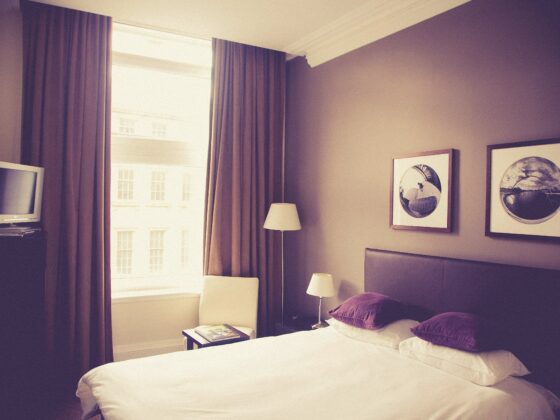
The hospitality sector has undergone a dramatic transformation over the past several years due to rising interest rates, declining discretionary income, impacts from the pandemic and changing work-from-home (WFH) trends. While early expectations projected a full recovery across all travel segments, the reality has been more nuanced. Leisure travel has remained remarkably resilient, whereas business travel—once a cornerstone of the hospitality industry— has struggled to regain its pre-pandemic momentum, especially in urban markets where WFH has become the norm. Now, new geopolitical and economic factors are poised to potentially impact lodging further, particularly in key leisure markets, while business travel continues to lag in many urban markets.
LEISURE SHIFT
During the height of the pandemic, travel restrictions and corporate policy shifts led to a significant decline in business travel. However, leisure travel, fueled by pent-up demand with a continued desire to travel and a preference for open-air destinations, flourished. Popular leisure markets experienced strong demand and increased room rates, with ski resorts, coastal areas, national parks and other outdoor-oriented locations benefiting the most. This dynamic has sustained itself even as broader economic conditions have fluctuated, reshaping how the hospitality industry operates.
The continued lag in business travel remains impactful. Many businesses have permanently adjusted their travel policies, reducing the frequency of corporate trips in favor of virtual meetings. Conferences and conventions, a critical driver of urban hotel occupancy, have yet to fully recover, particularly in some cities that were heavily reliant on business travel before the pandemic. Markets, such as Seattle, San Francisco and Chicago, which once thrived on corporate demand, are still working to regain lost ground. The gap in occupancy from 2019 that is being experienced in such markets is primarily due to the commercial segment not recovering.
The adverse effects on property values in these business-centric markets have become steeper as the anticipated recovery timeline keeps getting pushed out. The hospitality industry must now navigate a complex landscape. Hotels in traditionally business-heavy markets have begun repositioning themselves to attract more leisure travelers, offering experiential packages and amenities that cater to vacationers rather than just corporate guests. Additionally, destinations that have seen leisure travel boom—such as Utah’s ski markets—are benefiting from long-term shifts, including continued room rate growth.
INTERNATIONAL TRAVEL LOW FLOW
Looking ahead, international travel shifts present an obstacle, with the U.S. facing a 5.5% decline in inbound travel for 2025. Canadian and European travelers, who have historically been key contributors to U.S. leisure destinations, have started reducing their visits due to rising tariffs, currency fluctuations and evolving political dynamics. Going forward, leisure demand is at risk, especially in those markets dependent on international demand. Many airlines have already begun cutting flights. Canadian tourism could be as much as 70% lower this year and European travelers have also begun cancelling vacation plans to the U.S.
The strength of the Canadian dollar has long influenced travel trends, particularly to border states and warm weather destinations in the U.S. With the Canadian dollar’s weakened position and economic pressures mounting, cross-border leisure trips are expected to shift, with fewer Canadians visiting U.S. destinations in the near term. It is expected that gateway cities, from New York to San Francisco, will feel the impact of this shift more than inland states.
Winter-friendly destinations have historically benefited from international visitors escaping colder climates, with, for example, Canadian travelers making up a notable portion of winter tourism to these locations. If numbers dwindle due to economic constraints and trade tensions, the hospitality sector may see demand soften in these key leisure markets, posing new challenges for hotels, resorts and tourism-driven economies.
Regarding travel within the U.S., the potential impact of broader economic conditions on discretionary spending is another consideration. While leisure travel has remained strong to date, inflationary pressures, Wall Street declines, pending tariffs, increasing costs and high interest rates could weigh on consumers’ ability to maintain their travel habits. If economic uncertainty persists, hospitality markets that have historically depended on a robust leisure segment may start to see softer conditions with travelers either cancelling trips or trading down to lower-scale hotels or shorter trips to save money.
The question remains: Can leisure travel continue to compensate for the ongoing struggles of business travel along with new geopolitical headwinds? Will there be more “bleisure” trips, combining business and leisure, as travelers attempt to save money? While demand for outdoor, recreational and experience-driven vacations remains strong, the hospitality industry must prepare for shifting international travel behaviors, evolving economic conditions and a likely continuation of the segmented recovery that has been seen across various markets throughout the U.S. The lodging industry’s ability to adapt to new trends and ever-changing demand sources will determine the pace and extent of the effects of these changes in the hospitality industry.
Story contributed by Nancy Dawn, EVP, valuation & advisory, Newmark.








